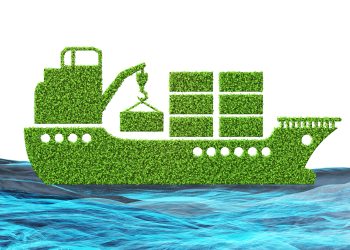A major cross-industry initiative led by Wärtsilä, MAN Diesel & Turbo and Winterthur Gas & Diesel to develop basic technologies for use in 2- and 4-stroke marine engines has been officially launched. The Hercules-2 project is aimed at fostering environmentally sustainable and more efficient shipping. It is in line with general European Union policy and is partly funded by the EU.
Altogether, 32 marine industry partners from 11 different companies, 16 universities, and five research organisations are cooperating in this project, with NTU Athens as coordinator. The R&D efforts focus on four main areas. These are:
- the application of alternative fuels and the optimisation of fuel flexibility to facilitate seamless swit
ching between different fuels; - the development of new materials to support high-temperature component applications;
- the development of adaptive control methodologies to significantly improve an engine’s performance throughout its life span; and
- to achieve near-zero emissions via combined, integrated, after-treatment of exhaust gases.
“The greatest of the many benefits stemming from Hercules-2 will be the development of new technologies that have a positive impact on our customers’ profitability. Another is the significant contribution this project will make to more environmentally sustainable shipping,” says Ilari Kallio, Vice President, R&D, Engines, speaking on behalf of Wärtsilä.
“Hercules-2 is a strong platform that will create a basis for the development of technologies applicable to ship engines in four to five years time. We have, therefore, positive expectations and look forward to collaborating with so many cross-industry partners,” says Søren H. Jensen, Vice President and Head of R&D at MAN Diesel & Turbo.
 Winterthur Gas & Diesel’s Vice President R&D, Rien Hoogerbrugge, sees Hercules-2 as an important opportunity:
Winterthur Gas & Diesel’s Vice President R&D, Rien Hoogerbrugge, sees Hercules-2 as an important opportunity:
“This project enables the partners to combine know-how by bringing together scientists from various fields and institutions to investigate concepts, and to develop robust technologies for application on different types of engines. We are pleased to be part of the Hercules consortium and we are looking forward to jointly developing environmentally friendly products for a sustainable future of merchant shipping.”
The Hercules-2 project is scheduled to run for three years. It represents the follow-up phase of the Hercules R&D programme for large engine technologies, which was originally conceived in 2004 by Wärtsilä and MAN Diesel & Turbo. The Hercules-2 technologies will eventually be employed aboard large ships.
Source: Wartsila
In the start, I was open with you propecia before and after has changed my life. It has become much more fun, and now I have to run. Just as it is incredible to sit.





























































